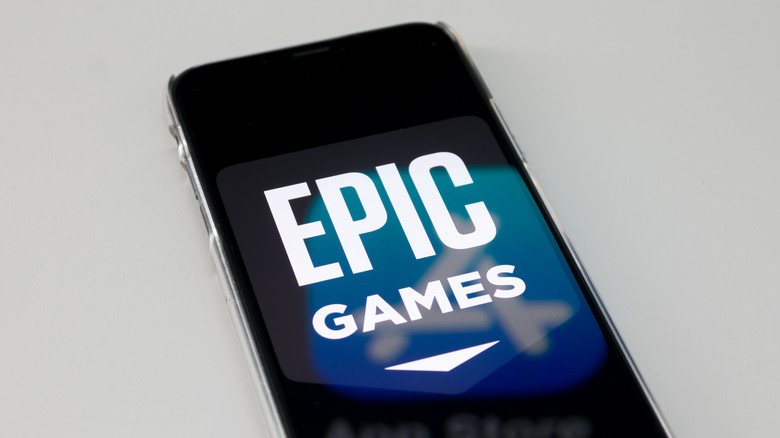Fortnite Creator Epic Scores Major Win In Antitrust Case Against Google
Epic Games just scored a massive victory in a blockbuster legal tussle against Google, which it argued has a monopoly over the distribution of apps and services tied to its platform and that it violated fair competition rules. At the center of the case was "Fortnite," the wildly popular battle royale game that is currently Epic's biggest money-maker. The company's victory is being seen as a landmark moment, one that could spark a wave of ecosystem-wide policy changes for Google's Android platform.
As part of its case, Epic argued that Google charges developers an exorbitant fee, which can be up to 30% of all in-app purchases that users make in an application. On top of that, Google also makes it mandatory for all developers to use the Google Play Store's own in-app payment system, taking a cut of up to 15% from recurring subscription fees. The company also prevents developers from distributing apps from a third-party store with a bunch of restrictive rules that put them at a disadvantage.
Victory over Google! After 4 weeks of detailed court testimony, the California jury found against the Google Play monopoly on all counts. The Court's work on remedies will start in January. Thanks for everyone's support and faith! Free Fortnite! https://t.co/ITm4YBHCus
— Tim Sweeney (@TimSweeneyEpic) December 12, 2023
The legal drama began back in 2020 when Google booted "Fortnite" off the Play Store – something that happened because Epic, without informing Google, released a "Fortnite" update that allowed players to buy in-game items from Epic's online store directly. The items bought straight from Epic were cheaper than the ones purchased through Google's platform, and the latter company didn't get a cut of the funds from those sales. As expected, Google says it will challenge the ruling.
Is the antitrust ruling a win for everyone?
"It proves that Google's app store practices are illegal and they abuse their monopoly to extract exorbitant fees, stifle competition, and reduce innovation," Epic said in a statement following the ruling. Notably, the jury ruled in favor of all the questions posed by Epic in the court. The verdict states that Google deliberately obtained or preserved its monopoly through unfair competitive practices, putting Epic at a disadvantage due to Google's breach of antitrust regulations.
Additionally, Google is said to have struck deals that unjustly limited competition in a key market and illegally linked the use of its Google Play Store with the mandatory use of Google Play Billing. During the legal battle, it was revealed that Google gave Spotify a special deal, allowing it to fully avoid the Google Play Store fees. Additionally, Netflix was also said to have scored a deal that reduced its cut to Google to just 10%.
That was considered a grave violation, as it gave undue advantage to Spotify and Netflix in their rivalry against other content streaming platforms, which had to part ways with a much higher share of their respective in-app revenue. Notably, Epic never sued for any monetary compensation from Google. It remains to be seen what remedies are forced on Google, and how they may help other grieving developers. This won't be the only such fight for Google, though. The EU and India are also looking into similar monopolistic conduct at the company and have already proposed some radical changes.

